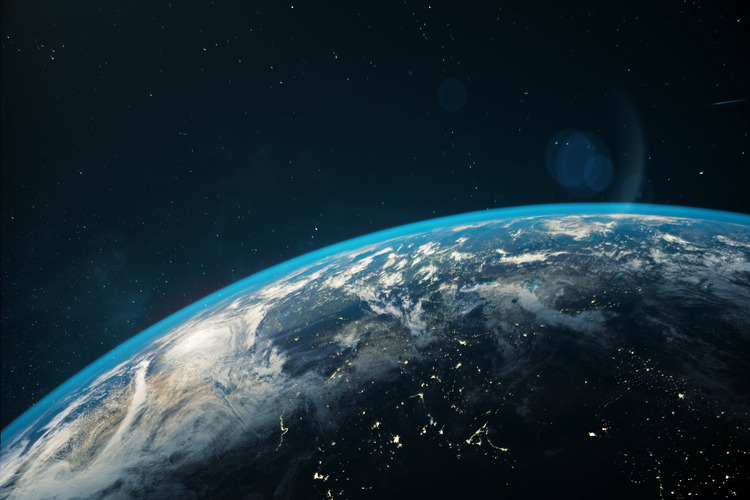
Climate change, says Marco Magrini, is making the insurance industry fear the Earth is on the verge of insolvency


Actuaries are, so to speak, the quiet prophets of the modern world. With spreadsheets and statistical models, they predict how long we’ll live, how much we’ll save and what degree of risks and uncertainties we’re going to face. Since the early beginnings of the insurance business (in China, around 4,500 years ago), their job has been vital in pricing insurance premiums, calculating the appropriate reserves and devising suitable reinsurance strategies.
Now, our warming climate has been adding a layer of complexity to the actuaries’ mathematical models. Think of the wildfires that just torched huge neighbourhoods and countless livelihoods around Los Angeles, fuelled by hurricane-force warm winds in the middle of an eerily dry winter. At this point, wildfires in California have become so frequent and ferocious that insurers are fleeing the market, leaving homeowners to face skyrocketing premiums or no coverage at all.
Related reads:
Nearly the same applies to coverage for floods in Britain or droughts in Australia, which are on the way to making the insurance of houses and farms intolerably expensive.
In some ways, insurers are facing a crisis of predictability. Traditional risk models, based on historical data, are no match for the accelerating pace of climate change. In the last five years, ‘global losses from flooding alone amounted to US$320 billion, of which roughly US$56 billion was insured,’ according to Munich Re, the world’s second-biggest reinsurance company. Of course, much of the Global South doesn’t have any risk coverage, and even in industrialised countries, the true cost of extreme events is far higher, as governments and communities shoulder the burden of uninsured losses.
While the world is still divided between those who define the climate crisis as either an ‘existential risk’ or a ‘hoax’, insurers, re-insurers and actuaries – not exactly green campaigners or eco-warriors – are begging governments to enact policies that reduce emissions and protect ecosystems, and invest in climate resilience. After all, their estimate is clear: the planet is on the brink of insolvency.
In a striking report titled Planetary Solvency: Finding Our Balance with Nature, the Institute and Faculty of Actuaries (IFoA) and the University of Exeter warn that humanity is running a dangerous deficit with the Earth. Just as a business must balance its assets and liabilities to remain solvent, humanity must align its activities with the planet’s ecological limits to ensure long-term survival.
If we think of forests as assets on the Earth’s balance sheet, deforestation represents a withdrawal, while reforestation and afforestation are deposits. If we treat glaciers as a finite resource, melting glaciers are a withdrawal from our ‘water budget’, and maybe we’ll remember that
their loss is irreversible on human timescales. If we assign an economic value to the services provided by ecosystems, such as pollination, water purification and carbon sequestration, their conservation and restoration immediately turn into the shrewdest of investments.
Finally, if we consider the atmosphere’s capacity to absorb CO2 as a finite resource, a faster curtailment of emissions is a must, not an option.

Under this light, it becomes clear that we’re living on ecological debt, whose interest rates could soon skyrocket and throw our planet into insolvency or bankruptcy.
More or less the same conclusions were reached by the Stockholm Resilience Centre in the latest update to its Planetary Boundaries study, which defines safe environmental limits for humanity. It found that six of the nine boundaries have been breached due to human activity, pushing the Earth beyond a stable operating space. The six transgressed limits include, after climate change, biosphere integrity (biodiversity loss), land- system change (deforestation and urban expansion), freshwater use, biogeochemical flows (nitrogen and phosphorus cycles), and novel entities (pollution from plastics and other chemicals).
‘The global economy could face a 50 per cent loss in GDP between 2070 and 2090 unless immediate policy action on risks posed by the climate crisis is taken,’ the IFoA report concludes. Planetary insolvency literally means a threat to future economic prosperity.
The fate of our economic destiny is in the balance. However, a wave of short-term nationalism is taking hold. A week after the US presidential election, all the major American banks quit the Net Zero Banking Alliance. It seems banking CEOs, like most current politicians, are more concerned with the course of GDP in the next quarter or, at most, in the next four years. Certainly not in 2070.



